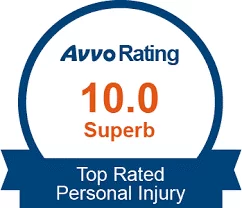Facing a personal injury claim when you already have pre-existing medical conditions can add layers of complexity to an already stressful situation. In Georgia, these conditions are often a focal point in personal injury cases, especially since insurance companies will scrutinize them to limit their financial responsibility.
You might be wondering, “How will my pre-existing condition affect my claim? Can I still obtain fair compensation?” In this blog, we’ll shed light on how pre-existing medical conditions influence a GA personal injury claim.
If you’re considering filing a claim or have questions about your specific situation, reach out to Greathouse Trial Law at (678) 310-2827 for a free case evaluation. Let us be your trusted advocate and guide during this challenging time.
What are Pre-Existing Medical Conditions?
Pre-existing medical conditions refer to any medical problems that you had before suffering the injury that serves as the basis for your personal injury claim. These conditions can range from chronic illnesses to previous injuries you may have sustained.
When you file a personal injury claim, the at-fault party’s insurance company will want to investigate any pre-existing medical conditions you have, which could affect their liability for the injury you sustained.
Eggshell Skull Rule in Georgia Law
In Georgia personal injury cases, the Eggshell Skull Rule plays a crucial role, particularly in scenarios involving pre-existing conditions. This legal doctrine states that a defendant must take a plaintiff “as they find them.” This means if a plaintiff has a pre-existing condition that makes them more susceptible to injury, the defendant is still fully liable for all injuries caused by their actions. Understanding this rule is key in personal injury claims where pre-existing conditions are present.
Plaintiff
The plaintiff is the person or party who is bringing the personal injury lawsuit against the defendant. They are the ones who have suffered injuries as a result of the defendant’s actions and are seeking compensation for their damages.
Defendant
The defendant is the person or party being sued in a personal injury case. They are the ones who are alleged to have caused the plaintiff’s injuries through their negligence, recklessness, or intentional acts.
Pre-Existing Medical Conditions and Personal Injury Claims
The presence of a pre-existing medical condition can complicate your personal injury claim by giving the insurance company ammunition to deny or minimize your claim. Insurance adjusters may argue that your injuries were caused by your pre-existing condition and not the accident, reducing or even denying your compensation.
Nevertheless, the at-fault party remains responsible for your injuries even if you had a pre-existing medical condition. Georgia law, like many other states, allows you to recover damages for aggravation of a pre-existing condition.
Common Misconceptions About Pre-Existing Conditions
There are several misconceptions about pre-existing conditions in personal injury claims. Some common myths include:
- Having a pre-existing condition automatically reduces the value of your claim. This is not always the case. If it can be shown that the accident worsened your condition, you may still be entitled to significant compensation.
- Pre-existing conditions will always be used against you. In fact, they can sometimes strengthen your claim by showing the extent of aggravation caused by the accident.
- You should not disclose your pre-existing medical history to your attorney or insurance company. This is not true. Disclosing your medical history is essential for ensuring that all necessary medical records are collected, which can aid your personal injury claim.
The Role of Medical Professionals in Personal Injury Claims
Medical professionals play a pivotal role in personal injury claims involving pre-existing conditions. Their expert diagnosis and documentation are vital in establishing how an accident has aggravated these conditions. Here are some of the ways in which medical professionals can help:
- Provide clear and detailed medical records. These records should document the extent of your pre-existing condition, how it was aggravated by the accident, and the resulting treatment and recovery process.
- Offer expert testimony. If necessary, medical professionals can provide expert testimony in court to explain how the accident aggravated your pre-existing condition and the extent of your injuries.
- Help you understand your medical condition and treatment options. Medical professionals can provide you with clear and concise explanations of your medical condition and the treatment options available to you. They can also help you understand the potential long-term effects of your injuries.
Case Examples
Consider the case of John, who had a history of neck pain. After a minor car accident, his pain intensified. In court, medical records and expert testimony helped establish that the accident exacerbated his pre-existing condition, leading to a favorable settlement.
In another case, Jane, who had a pre-existing knee injury, slipped and fell at a store. The store argued that her knee pain was solely due to her pre-existing condition. However, expert medical evaluations presented in court proved that the fall significantly worsened her knee condition, impacting the compensation she received.
Tips for Maximizing Compensation
The following tips can help you maximize your settlement amount, even with a pre-existing medical condition:
- Disclose your medical history to your attorney, insurance company, or healthcare providers. This will ensure that all necessary medical records are collected, which can aid the personal injury claim. Of course, it’s important to be cautious when cooperating with the insurance company. You should not provide them with any more information than is necessary, and you should always be truthful and honest. It’s also essential to consult with an attorney before speaking with the insurance company. An attorney can help to protect your rights and ensure that your best interests are represented.
- Be honest with your doctor. It’s crucial to be honest when providing medical information to your doctor. Your doctor will need an accurate medical history to evaluate your injury and determine whether the pre-existing condition affected your injury.
- Hire an experienced personal injury attorney. Pre-existing conditions can complicate the personal injury claim process. Hiring experienced personal injury attorneys who understand pre-existing conditions and have experience working with insurance adjusters is critical.
- Prepare for a medical expert’s testimony. An insurance company may request a medical expert’s opinion to evaluate how much of the injury is related to the accident and how much of the injury is pre-existing. It’s essential to have a medical expert to testify on your behalf. Your doctor should also be willing to testify if needed.
Having a pre-existing medical condition can complicate a personal injury claim, but it doesn’t necessarily prevent you from receiving fair compensation. By disclosing your medical history, being honest with your doctor, hiring an experienced accident attorney in Atlanta, Georgia, and preparing for a medical expert’s testimony, you can maximize your compensation despite the pre-existing condition.
Remember, the law in Georgia states that a defendant is responsible for making you whole, which includes all injuries, including pre-existing conditions.
Dealing with a Personal Injury in Georgia and Concerned About Your Pre-Existing Condition? Let Us Help You Build a Strong Case
Navigating a personal injury claim in Georgia can be particularly challenging if you’re also dealing with pre-existing medical conditions. You might be unsure how these conditions will affect your claim and what your rights are in seeking fair compensation. It’s important to remember that insurance companies may not always have your best interests at heart, as they often aim to minimize the payouts for claims.
That’s where having a knowledgeable and experienced Atlanta personal injury law firm team on your side becomes invaluable. At Greathouse Trial Law, we understand the complexities of personal injury claims involving pre-existing conditions. Our team is dedicated to ensuring that your case receives the attention it deserves, so you can focus on your recovery.
Don’t try to tackle the legalities and insurance negotiations on your own. Call us today at (678) 310-2827 for a free consultation with a Georgia personal injury lawyer who knows how to navigate these intricate cases. We are committed to helping you recover the comprehensive compensation you need for your medical care, lost earnings, and overall well-being.
For added convenience, you can also reach out to us by completing our online form. Our seasoned legal team is ready to advocate for your rights and guide you through every step of your claim.
Copyright © 2023. Greathouse Trial Law, LLC. All rights reserved.
The information in this blog post (“post”) is provided for general informational purposes only and may not reflect the current law in your jurisdiction. No information in this post should be construed as legal advice from the individual author or the law firm, nor is it intended to be a substitute for legal counsel on any subject matter. No reader of this post should act or refrain from acting based on any information included in or accessible through this post without seeking the appropriate legal or other professional advice on the particular facts and circumstances at issue from a lawyer licensed in the recipient’s state, country, or other appropriate licensing jurisdiction.
Greathouse Trial Law, LLC
260 Peachtree Street NW
Suite 803
Atlanta, GA 30303
(678) 310-2827
https://atltriallaw.com/


